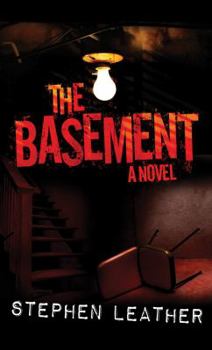The Basement
Select Format
Select Condition 
Book Overview
New York is a city full of strangers. For NYPD detectives Turner and Marcinko, none are harder to figure out than the serial killer on the loose torturing and killing young women. In fact, right now, somewhere in the city, a woman is being held captive in a basement and it is up to the detectives to find her and the killer--before it's too late.
As pressure mounts on Turner and Marcinko, their prime suspect is screenwriter wannabe Marvin Waller. He is becoming increasingly frustrated by his lack of success and the cops think he might be channeling his anger into murder--but he doesn't seem to be at all concerned that they are hot on his trail. As Turner and Marcinko close in on Waller they have to wonder: is he the killer? And if he isn't--who is?
Fusing shifting viewpoints with a growing sense of dread and almost unbearable suspense, the UK's thriller master Stephen Leather arrives on the shores of the United States with The Basement, his most terrifying work to date.
Related Subjects
Adventure Fantasy Fiction Literature & Fiction Science Fiction Science Fiction & Fantasy




















